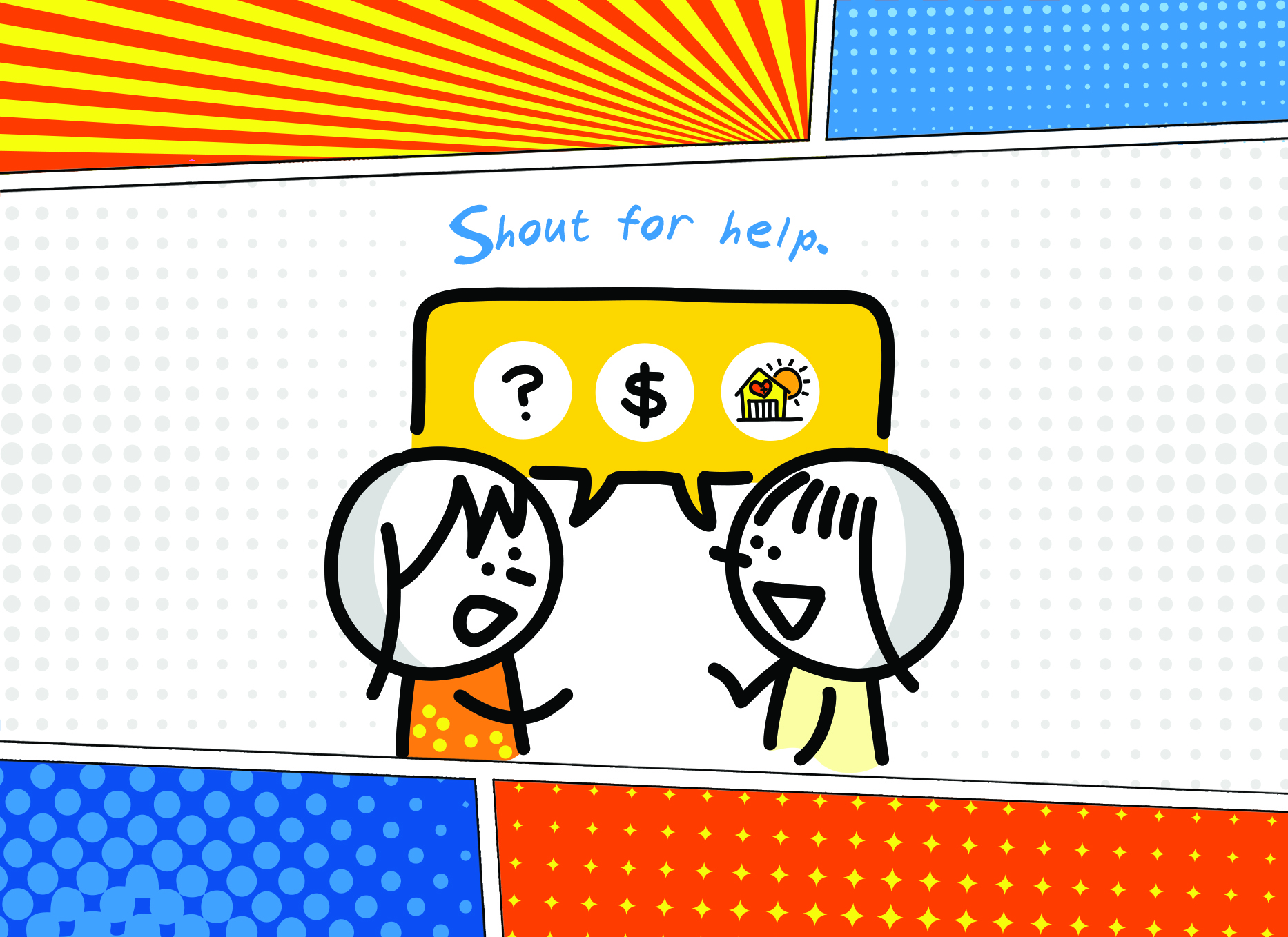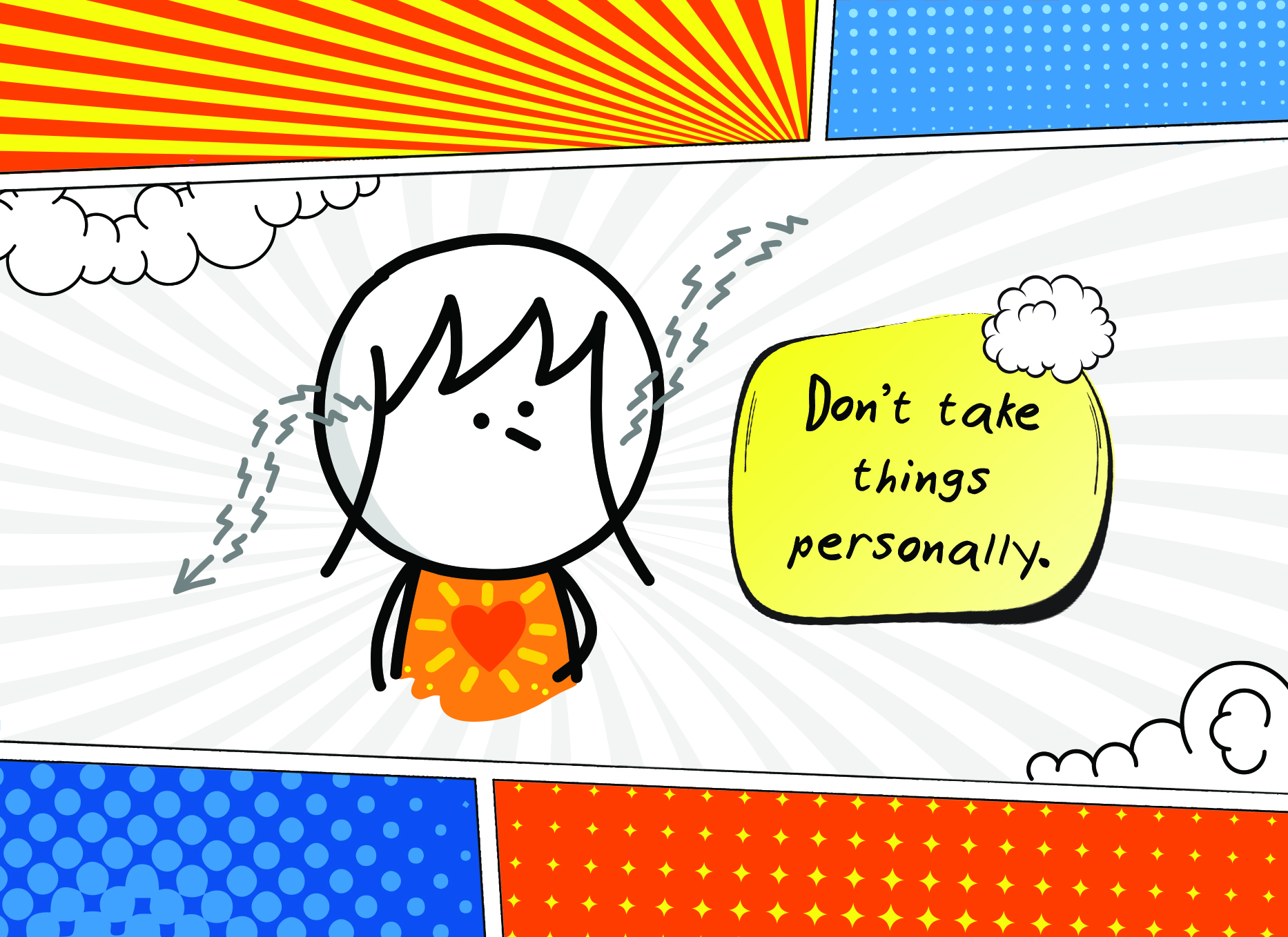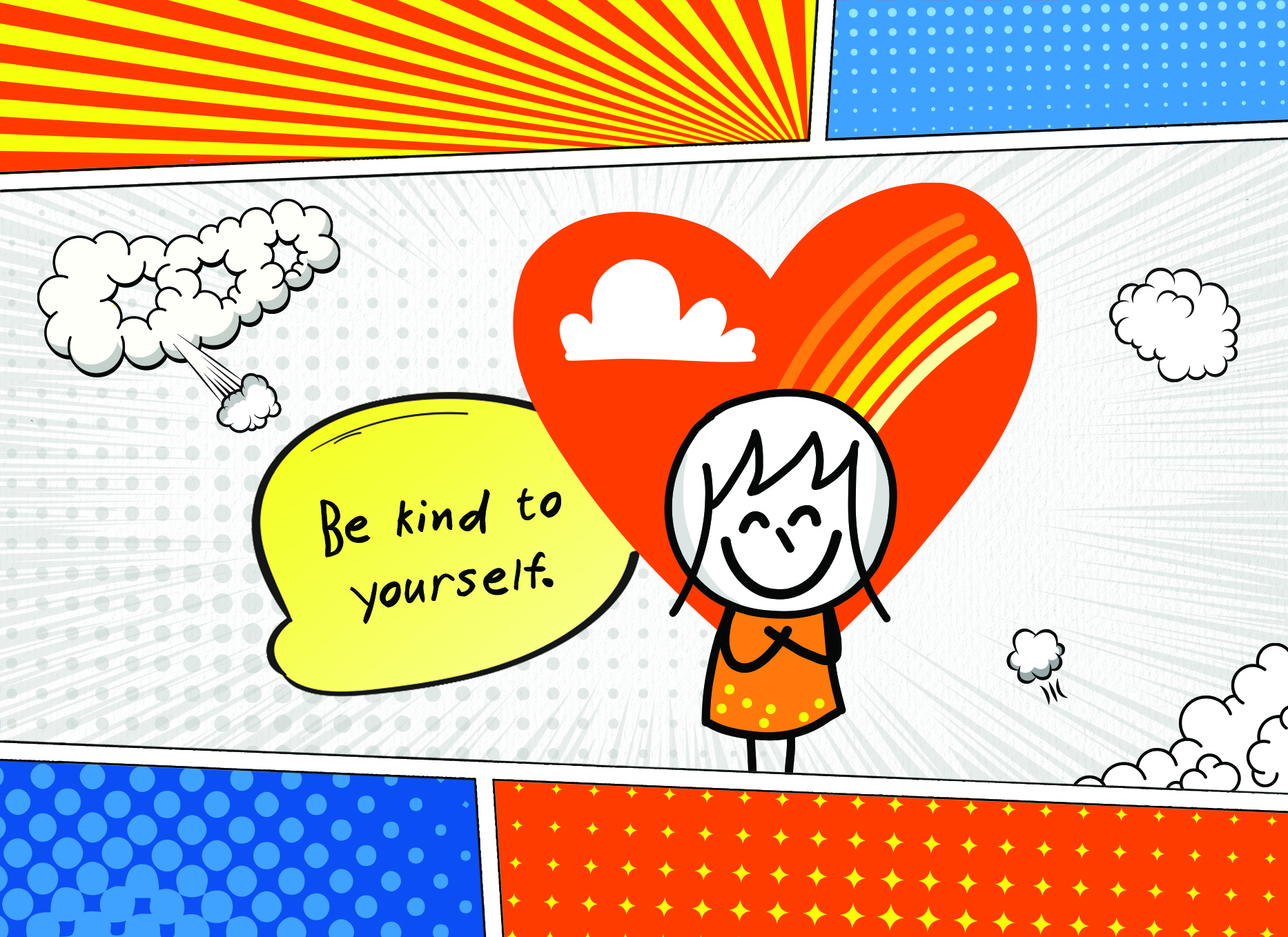
Shout for help
It’s OKAY to seek help for your loved ones.
Be open to explore various options to ensure they receive adequate care.
It can be challenging and stressful seeing and caring for your loved ones who are not in good health – mental or physical.
You are not alone. Spot the warning signs, discuss the challenges with your family and seek advice from the health care professionals on the best care plan for your loved ones before their conditions deteriorate.

Do what makes you happy
In prioritising your loved ones’ needs first plus having to manage family and work commitments, it is easy for anyone to neglect our personal wellbeing.
If the stress of caregiving is left unchecked, it can take a toll on your life, leading to burnout – causing more anxieties for the person you are caring for as well as yourself.
That’s why taking care of yourself is not a luxury, it is a necessity. Taking time off for yourself to recharge your body and mind is just as important as making sure your loved ones attend their doctor’s appointment or take their medication on time.

Don't take things personally
Your caregiving journey can be as rewarding as it is challenging. There may be times where you share heart-warming moments with your loved ones. On others days, you may encounter anger and frustration when you approach your loved one about your concerns.
The loss of independence and the potential long-term effects of their medical conditions can be especially scary and agonizing for your loved ones. Conflicts may arise. Try communicating with them to find out the underlying causes. Many times, fear or anxiety is the underlying culprit of their behaviours.
Put yourself in their shoes, soften your approach and do not take any attacks personally. Keep your own emotions in check so that you can help your loved one manage their physical and emotional needs.

Understand your loved one's condition
Learning more about your loved one's condition and prognosis can help you anticipate your loved one’s needs, know what helps and what would not, and make you feel more adequate and in control in caregiving.
You can also ask the doctor for help. Know that your skills will improve with time, and you will be able to deliver the best care possible to your loved one in due time.

Be kind to yourself
Give yourself the same kindness as your would give to your loved ones.
Caregiving can be a challenging road. While some difficulties may not be easily resolved, there are some tools that can help, such as self-compassion.
Self-compassion involves an awareness of the challenges that you face. You’re aiming to be kind to yourself about them, and any mistakes that you make.
Acknowledging the challenges and caring for yourself, you can adapt better and work through the difficulties while caring for your loved one.

Healthy Minds = Happy Lives
Learn more about mental health and debunk the myths through a series of interesting and informative posts through the Healthy Minds, Happy Lives campaign by Singapore Anglican Community Services Psychiatric Services.

Shadee.Care is a space where you can find a lil’ dose of good vibes to make your day better. We share the latest trends on mind-care by looking at celebrities, K-pop, music, movies, anime, manga, fandoms and all things that matter to youths.
> Follow us on Instagram @shadee.care

